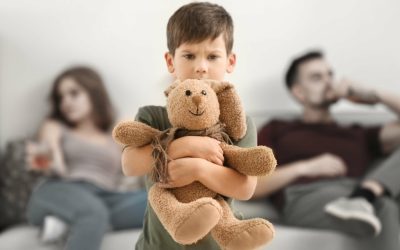The initial sedative effects may give way to rebound insomnia, contributing to a disruptive sleep cycle. Alcohol, a common social lubricant and stress reliever, insomnia after stopping drinking has a complex relationship with sleep. While some may turn to a nightcap to unwind, few realise the potential disruptions it can cause to the sleep cycle. In this comprehensive guide, we’ll delve into the intricate connection between alcohol and sleep, exploring its effects on the brain, behaviour, and the troubling link between alcohol addiction and insomnia. Before we proceed, it’s essential to note that the information provided is for general purposes only.
Alcohol Disrupts Sleep Stages

It should not be used in place of the advice of your physician or other qualified healthcare provider. While staying hydrated can prevent some of alcohol’s dehydrating effects, it won’t fully negate alcohol’s impact on sleep cycles. Coffee may help you feel more alert in the morning, but it doesn’t restore lost sleep quality. For the treatment of either disorder to be effective, both insomnia and substance abuse should be addressed together. Someone in recovery from alcohol use may experience setbacks because of sleep-related withdrawal symptoms. They may believe it reduces their anxiety over the day’s events and helps them get to sleep.
The first treatment for insomnia in recovery is sobriety, and many patients will see improvement. For the specific treatment of insomnia, behavioral therapies are the preferred treatment (rather than medications), as they are effective and they won’t interfere with sobriety. Sleep problems are often viewed as one of the last things to improve among people in alcohol recovery.
The Science of Alcohol and Sleep
Relatedly, sleep experts commonly recommend nonbenzodiazepine agents like zaleplon and zolpidem because of their rapid action and clearance, although little is known about their abuse liability among alcohol dependent persons. Suffice it to say that more research https://tienda.oliviazarate.com/can-heavy-drinking-cause-alcohol-induced-dementia/ is needed regarding the safety and effectiveness of benzodiazepine receptor agonists for the short-term management of insomnia in alcohol dependent patients (13). Withdrawal symptoms are a whole different world than alcohol-induced sleep problems.
Alcohol and Other Sleep-Related Breathing Problems
- Sleep architecture is biologically driven and finely calibrated to meet the body’s needs during nightly rest—changes to the natural, typical structure of sleep aren’t generally good for health or well being.
- These vivid, disturbing dreams often occur during REM sleep, which alcohol initially suppresses but later causes to rebound.
- Because alcohol makes it difficult to get normal sleep, it is a cause of insomnia.
Whether you need expert sleep advice for your insomnia or you’re searching for the perfect mattress, we’ve got you covered. There is a growing body of literature demonstrating a bidirectional relationship of insomnia with alcohol consumption and alcohol misuse. While a drink now and then may have a sedative effect that causes you to drift off faster, research shows that it can impede sleep quality in the long run. Research in adults over age 50 found heavy drinkers have Twelve-step program a 64% greater risk of insomnia, while less frequent binge drinkers are 35% more likely to develop insomnia than nondrinkers. At night, this can cause obstructions in your upper airway, leading to sleep apnea.

And regularly using alcohol to fall asleep can lead to serious health consequences. Men with higher AUDIT-KR scores tended to suffer from poor sleep quality. AUDIT-KR scores showed significant correlations with subjective sleep quality, sleep duration, and sleep disturbances in men. Lack of standard definitions and measurements of both insomnia and alcohol use render uncertain the magnitude of any association. For insomnia, questions and their time frame (e.g., past month vs. last 12 months) vary. Some studies have defined “sleep problems” through self-report (again, over varying periods of time), while other studies have defined “sleep problems” in terms of polysomnographic measures (e.g., latency, percentage of REM sleep).

Address sleep issues today
People with alcohol use disorder experience insomnia at higher rates than those who don’t abuse alcohol. The simplest way to keep alcohol from interfering with your sleep is to just not drink. The World Health Organization (WHO) has declared that no amount of alcohol is safe to consume.
What Happens When You Drink Alcohol Right Before Bed?
Adenosine is a chemical that helps promote sleep, and the increased levels of adenosine are one of the reasons that drinking alcohol can make you sleepy. Combining alcohol with sleep aids (prescription or over-the-counter) can compound sedative effects and lead to dangerous breathing difficulties or excessive drowsiness. Always consult a healthcare provider before mixing any medications with alcohol. If you notice consistent restlessness or awakenings, try extending your alcohol cutoff window (e.g., four or five hours before bed) and see if your sleep quality improves. If you want to avoid any ill-side effects of alcohol—at least as it relates to your sleep—cut yourself off around three hours before bedtime.
Mental Health Resources
Binge drinking is defined as five or more alcoholic drinks for males or four or more for females on the same occasion—enough to raise your blood alcohol concentration to 0.08% or higher. First, alcohol affects everyone differently because of a slew of factors, like age, biological sex, and body composition, just to name a few. Alcohol has a diuretic effect that causes your body to release more water in the way of urine.
Can Spirulina Help You Sleep Better?
In one study, subjects with AD in acute withdrawal demonstrated a higher intensity of respiratory events in their sleep (12.6 ± 12.3 events/hour), as compared to healthy controls (3.6 ± 3.4 events/hour) (Le Bon et al., 1997). In another study, a higher prevalence rate of SDB was seen in treatment-seeking patients with AD (41%), as compared to control subjects (23%). In this study, SDB was a significant contributor to sleep disturbance in a substantial proportion of male AD subjects above the age of 40 years (Aldrich et al., 1993). To the best of our knowledge, there is no data on the association of AD with central sleep apnea in the absence of other risk factors, such as comorbid congestive heart failure and opioid use. There is some inconsistency in the literature relating to REM sleep abnormalities during sustained recovery. In one study, REM sleep architecture demonstrated a reversal during early recovery, with the first REM sleep episode of the night being the longest, despite a lack of depressive disorder in these subjects.
- A number of studies aimed at understanding the mechanisms underlying workers’ health risks show that the behavioural strategies used to cope with sleep disturbances have a negative impact on their psychophysical integrity.
- In another study, a higher prevalence rate of SDB was seen in treatment-seeking patients with AD (41%), as compared to control subjects (23%).
- Fatigue affects 60-70% of individuals with alcohol-induced sleep disorder.
- According to studies on alcohol and sleep, you tend to spend more time in the lighter stages of sleep and REM sleep (the period when you dream) during the later part of the night, after you’ve thrown back a few cocktails.
- Sleep disruptions may increase the risk that a person will feel tired, which might cause a person to reach for a drink if they feel like they can sleep sober.
Results were extracted from the individual studies as either adjusted measures of effect, crude measures of effect, or using raw data. Effect estimates adjusted for smoking and other factors were used in preference. Binary effect measures were extracted as odds ratios (OR), hazard ratios (HR) or risk ratios, with 95% confidence intervals (CI).
As a result, when consumed in excess, alcohol can lead to shorter sleep duration and a poorer quality of sleep. Those with alcohol use disorders can experience insomnia due to this. Alcohol-dependent patients with insomnia are more likely to report using alcohol to improve sleep than those with out insomnia(41). If insomnia is a withdrawal symptom, then relief drinking seems a reasonable and reinforcing strategy, though counter productive. A substantial proportion of abstinent alcohol dependent persons describe having been aware that alcohol disturbed their sleep, but that they needed to drink to get to sleep (52). As these individuals become desperate for sleep, alcohol initially makes it easier to fall asleep until sleep disruption develops.
